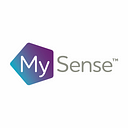Ethics in Artificial Intelligence (AI) — Informed Consent
Informed consent plays an important role in fulfilling both ethical obligation and moral and social duty
We pride ourselves on being founder members of the Data for Good Foundation and, even in healthcare settings, we advocate a consent-based model for signing up to receive the benefits that AI-driven wellbeing insights can bring.
We want people to understand what they are agreeing to, how their data is used, their right to be forgotten and how generating data points by interacting with their home environment translates into health and wellbeing insights that can help those receiving them prevent minor issues escalating into a crisis.
In short, we don’t consider consent to be enough — we want those benefiting from our insights to give informed consent.
Many of the people who subscribe to MySense are older adults. There is a significant minority who are well-informed about technology and keep up to date with developments; they use email and the internet and so on. However, many do not own smartphones or have access to the internet. Nor do they feel they are missing anything by not engaging with the digital world. They are almost always aware of computers, and broadly what they are used for, although may not have used one themselves.
So here is the ethical question — how do we explain what we do in terms that fulfil both our ethical obligation to inform our potential Individuals before they give consent, and our moral and social duty to frame that conversation in a way that makes sense to their frame of reference?
This challenge is not confined to MySense, of course. It is one that the industry as a whole is, or should be, taking on. Some are rising to the challenge, others brush such ethical concerns under the rug of commercial imperative.
That’s not us though. MySense was started to be a force for good in the world — to make a positive difference to every individual on our platform. So that’s the approach we take, and that’s the approach we encourage our health and social care customers to take with the people in their care. Just as MySense builds a unique data portrait for every person benefiting from MySense, so the conversation leading up to informed consent is different for each Individual.
We make sure that those having the conversations with potential Individuals are well informed themselves through training, mentoring and access to an extensive library of frequently asked questions. We also take the time to continuously learn how to have those conversations and update the advice and training we give to our enterprise customers. We want people to know what they are signing up to, because our team works tirelessly on making MySense the most effective AI-powered health and wellbeing platform available and the experience of using it the best it can possibly be.
Written by James Brown, Partnerships Director at MySense
